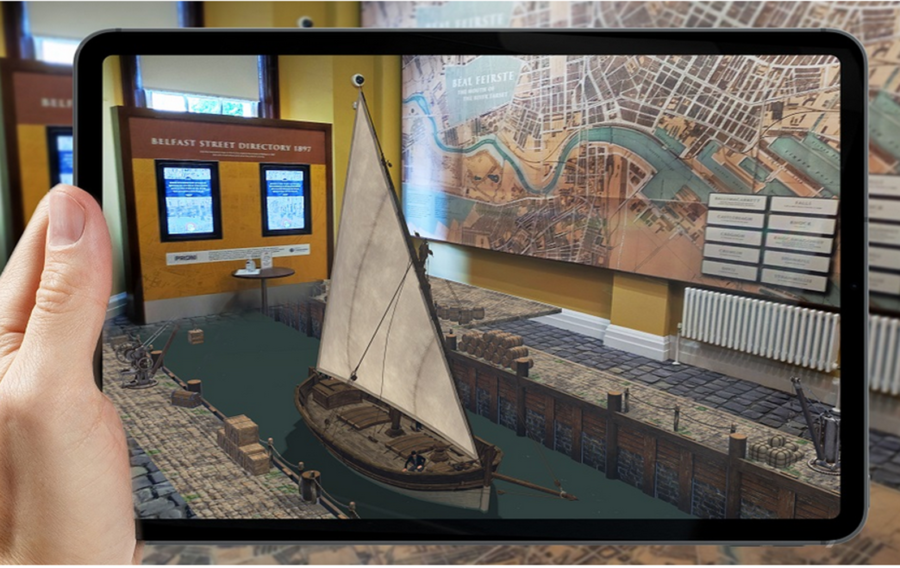
Previous articles from UM Labs have discussed the importance of securing real-time communication on IP networks and applying those principles to IoT security. The Metaverse pushes those security needs to the limit by adding complexity to edge devices, to the protocols used and to the content delivered. How can Metaverse applications be delivered with a level of security to meet both military and civilian needs?
The term Metaverse encompasses a wide range of capabilities to create an immersive virtual world in which users interact using virtual reality, extended reality or augmented reality devices. The devices that contribute to the experience may include headsets, smart glasses, enhanced audio and video projection systems and be based on a range of computing platforms including Android and iOS devices. Originating from gaming, the technology is finding application for training, simulation, remote device control and digital twin applications in military and commercial sectors. Generating the extended reality scene requires some serious processing power, beyond the capability of headsets or tablets. Hosting scene generation in the cloud, using chipsets such as those from Nvidia to create Cloud Extended Reality (CXR), solves this problem but creates a new problem, securing the information flow between cloud and device.
Metaverse applications require two-way communication channels to send positioning and other data from the device to the cloud rendering engine and to relay the augmented scene back to the end device. Applications may use established protocols such as RTSP for control and RTP for the media steams or apply newer technologies such as IEEEE P2874 and the related HSTP. Software tool kits exist to support development, but some, such as Nvidia’s CloudXR SDK lack the necessary security features.
Security is essential for metaverse applications; controls must positively identify and authenticate both the core and end devices, must secure the two-way data streams with a level of security appropriate to the application and must protect all components from attack.
UM Labs have solved this problem with the Unicus® platform. Unicus provides layered security covering network, application and content. The network layer examines and controls the flow of data to and from the network. The application layer includes a full implementation of the relevant protocols and maintains state at the transaction level enabling validation of all requests and responses. The content layer protects the data driving the application including applying a level of encryption appropriate to the sensitivity of that data. Unicus implements policy driven management ensuring that the configuration of all three layers is synchronised and providing feedback between the layers so that threat countermeasures can be applied and the most effective and efficient point. The same layered architecture is applied in Unicus Core system, cloud or virtual instances protecting application servers, and in Unicus Edge devices, software or SDKs designed to protect IoT or Metaverse end devices.
Using the Unicus Core and Edge capability, UM Labs have provided the security needed for BT to deploy an Augmented Reality (AR) application for Belfast City Council. This application runs on iPad tablets in the City Hall’s visitor exhibition and provides past, present and future view of Belfast City. The tablets are connected over BT’s 5G network to deliver the bandwidth needed for high quality graphics. The heavy lifting, to generate the augmented reality view overlayed on a static display, runs on Nvidia processors running in the AWS cloud. UM Labs’ role is to provide the security at both Edge and Core, to secure the link between them and to manage Network Address Translation (NAT) traversal to deliver the service over any IP network. Unicus Edge is delivered as a software library which is easily linked with the AR application. Unicus Core runs as a dedicated AWS instance. A single Unicus Core handles multiple connections to AR rendering instances with their Nvidia chips. Unicus Edge and Core combine to protect the iPad Tablets and the AR instances, to ensure that all sessions are authenticated and validated and to provide encryption up to Post Quantum levels with fully protected key exchange.
The success of the Belfast project demonstrates that this technology can be applied to military deployments and secured to the appropriate level. The integration with 5G services shows that bandwidth demanding services can be rapidly deployed using either public or private networks. The ability to run on any IP network including 5G and to deliver Core to Edge security at a level able to meet military requitements means that Unicus from UM Labs enables the rapid deployment of Metaverse and Extended Reality in any location. Current technology means that private 5G networks can be deployed from base stations in vehicles or even carried as a light-weight back pack.
UM Labs is at DPRTE in Farnborough on the 26th and 27th March, come and see us on stand 136, visit our website at www.um-labs.com or contact us at info@um-labs.com.









